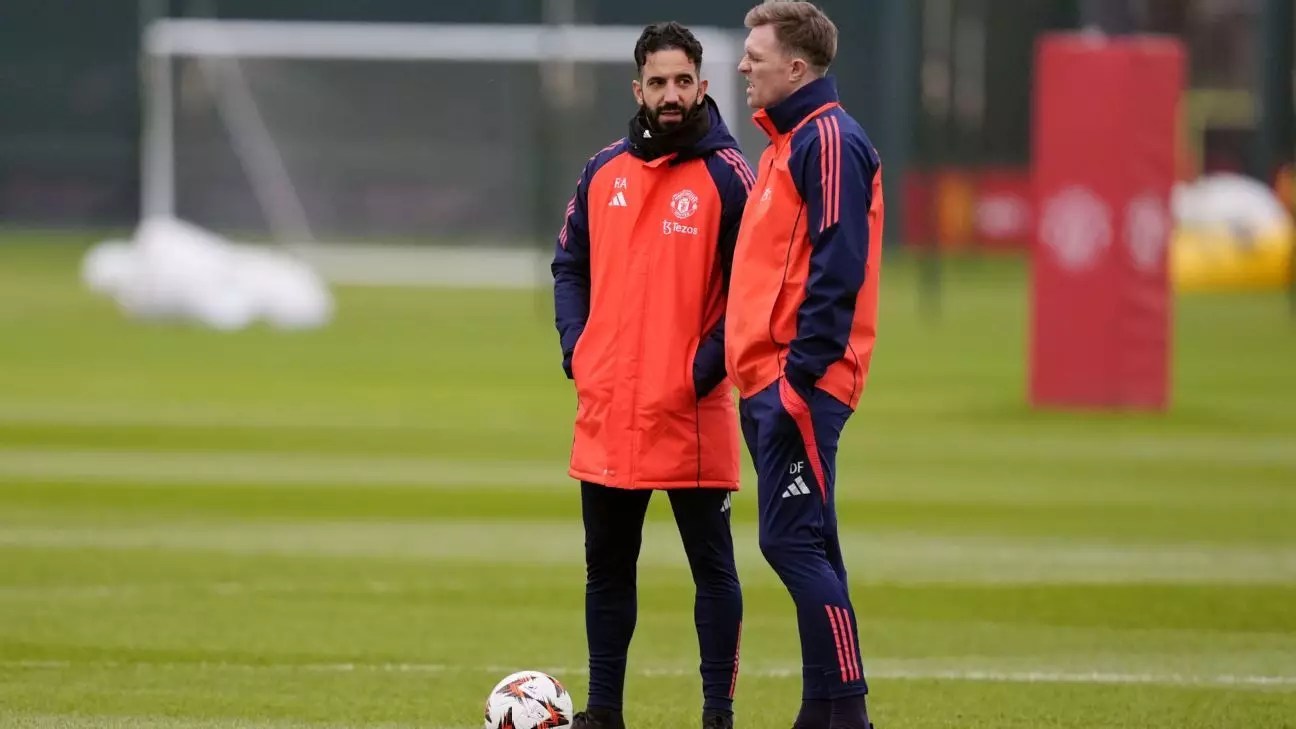Manchester United finds itself amid significant changes once again, illustrating a chapter of evolution that speaks volumes about the challenges and aspirations inherent to a club of its stature. Ruben Amorim, newly appointed manager, has voiced his insights on the recent departure of Dan Ashworth, showcasing both the implications of this shake-up and the overarching vision that Sir Jim Ratcliffe envisions for the historic club. As Amorim settles into his new role, the response to Ashworth’s exit reflects a deeper narrative about leadership stability and future ambitions.
The football universe is often unpredictable, with unexpected exits not just a possibility but an eventuality that clubs must navigate. Ashworth’s abrupt resignation from Manchester United—just five months into his role as sporting director—highlights the intricate dynamics within the organization. Initially celebrated as a transformative addition to United’s strategic framework, his swift exit necessitates a reevaluation of recruitment processes and overall team strategy.
Amorim’s comments reveal a duality at play; while acknowledging the unsettling nature of Ashworth’s departure, he emphasizes the support he continues to receive from the club’s leadership, including CEO Omar Berrada and technical director Jason Wilcox. “This is football, and sometimes this happens,” he remarked, indicating that instability can be an inherent part of the game. This sentiment underscores a fundamental truth about football management—constancy is elusive, yet the vision must remain steadfast.
Even as the club faces upheaval, Amorim is resolute in his belief that the strategic direction remains clear. His assertion that “one person leaving doesn’t change anything” articulates a position of resilience and continuity. For a club of Manchester United’s caliber, perspective is crucial; the overarching strategy must endure beyond individual roles. The departure of a key figure ought to serve as a catalyst for reasserting focus on the collective mission.
Wilcox’s ascension in the recruitment hierarchy suggests an adaptable response to internal changes. With the January transfer window looming, the club seems poised to make significant moves that may redefine the squad. The willingness to consider offers for several first-team players illustrates a proactive approach to squad management, with the prospect of reinvestment at the forefront of the leadership’s planning.
Amorim is acutely aware of the urgency associated with his new position. Just a month into his tenure, he faces the pressing need to integrate his vision with the existing talent. His commitment to cultivating a clear player profile reflects an understanding of the importance of coherence within the squad. Integration of academy players and clear expectations on performance will be pivotal in shaping the identity of the team.
“We have to improve as a team,” Amorim asserted, highlighting the necessity of consistent performance levels and accountability among players. Such statements reveal a commitment to building a culture of excellence where mediocrity is not tolerated, reinforcing the competitive spirit emblematic of Manchester United. As Amorim emphasizes the need for time to accustom players to his philosophy, he juxtaposes this patience with the urgency for results—a balancing act that will define his success.
As the team travels to Czechia for an important Europa League clash against Viktoria Plzen, the stakes are undeniable. United’s recent struggles in European competitions make a positive result critical—not just for qualification to the next stage but also for morale and team cohesion. Amorim’s words resonate with a sense of urgency: “It’s really important to win the game and to play well.”
Additionally, facing a club that is formidable at home poses a unique challenge. Viktoria Plzen’s impressive form, combined with the recent results, underscores the necessity for United to not only perform but to perform under pressure. Ultimately, success in this match could serve as a pivotal moment for a squad still finding its rhythm. The path forward is fraught with challenges, but Amorim’s determined focus suggests that Manchester United is committed to navigating its evolution with ambition and resolve.


Leave a Reply